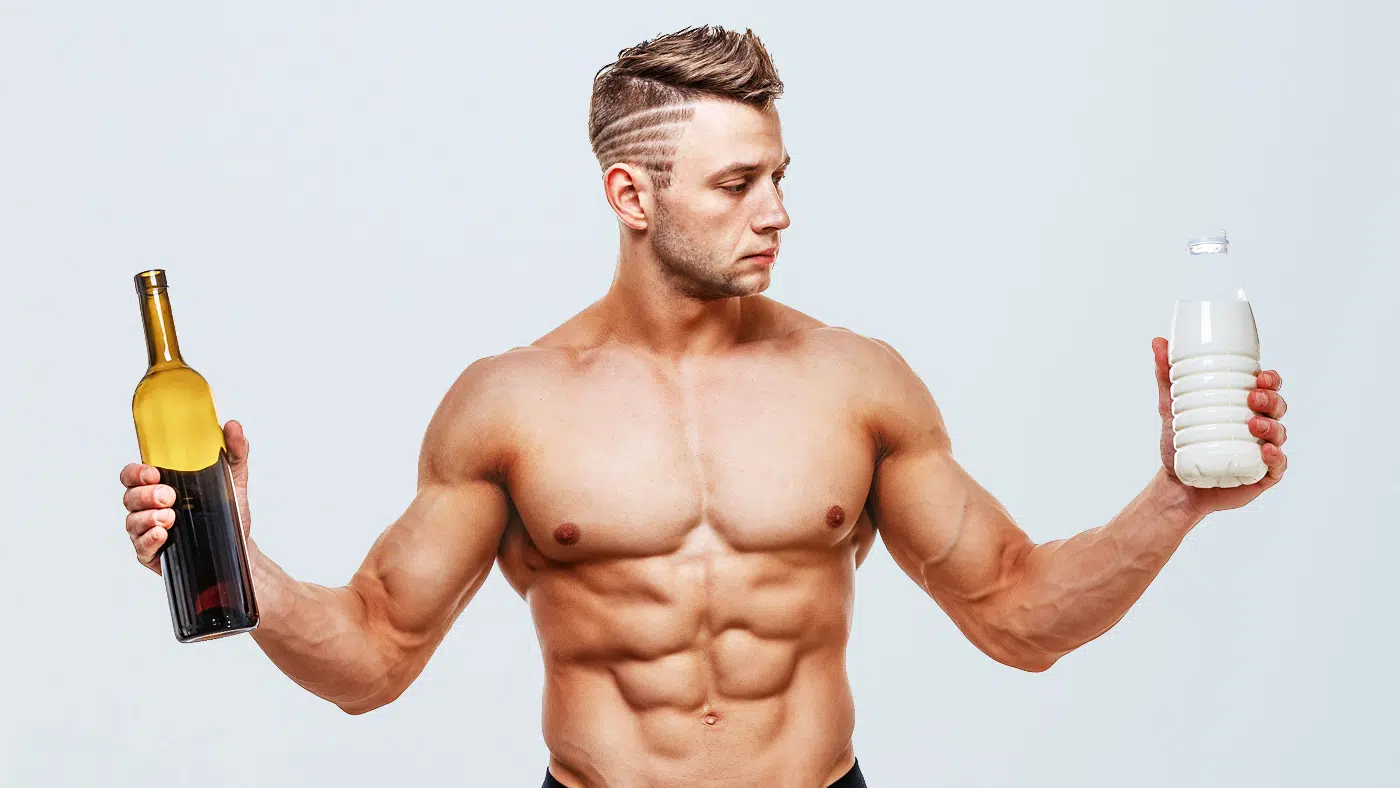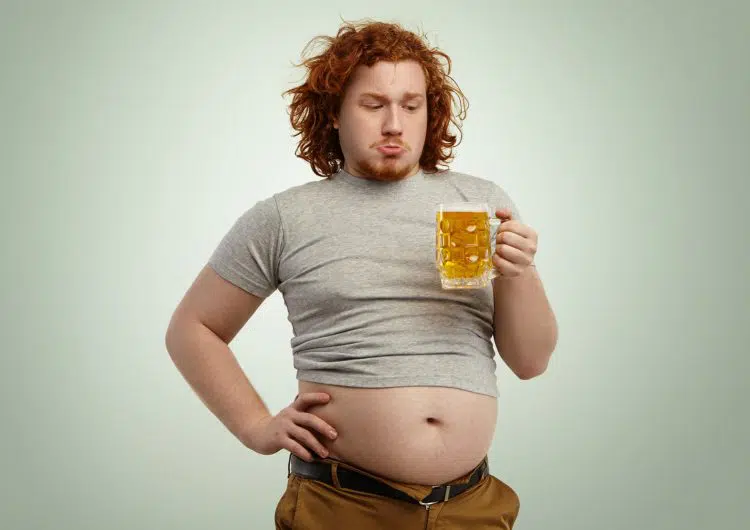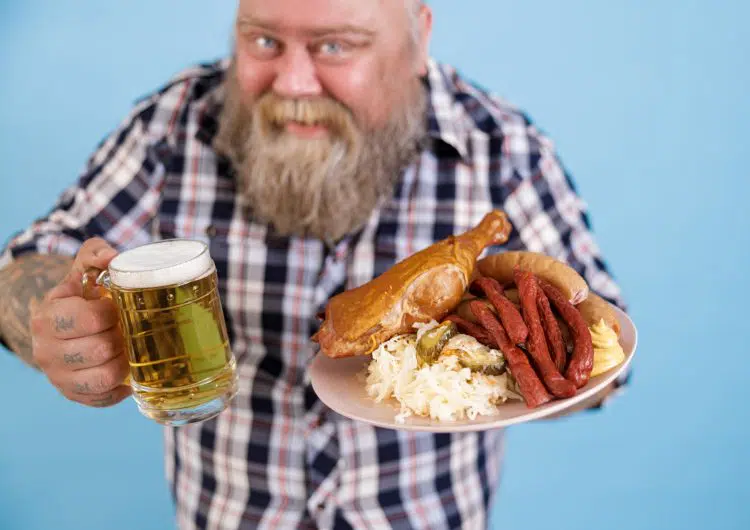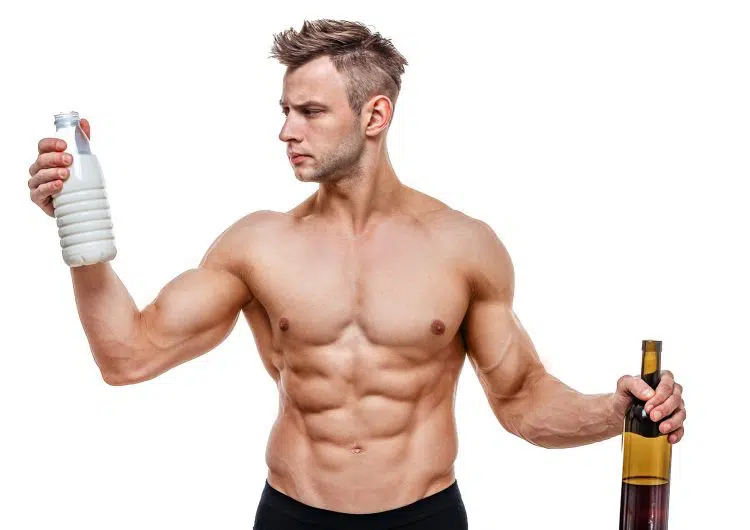Let’s get straight to the point.
The fountain of youth is overrated. Learning how to drink alcohol without gaining fat and losing muscle is the real deal.
If you are into fitness (which we guess is highly likely since you are reading this article), most of your research probably revolves around underrated and underutilized diet and training techniques. But, this article is a little different.
Fitness freaks don’t drink. So, who is this article for?
We are glad you asked. This article is for –
The crazy ones, the misfits, the rebels, the troublemakers, the round pegs in the square holes. The lifters who see things differently. The athlete’s not fond of rules and with no respect for the status quo. Gym bros can quote them, disagree with them, glorify or vilify them, but the only thing the bros can’t do is ignore them because they change things. The fitness outliers push the bodybuilding scene forward, and while some may see them as the crazy ones, we see genius, because the lifters who are crazy enough to think that they can change the world, are the ones who do.
If you are wondering if I just paraphrased Steve Jobs, yes, I did.
Today, we will show you how you can let loose a little (or a little too much) a few nights every month without hurting your gains.
Why Alcohol is The Enemy of Gains
Before we get to how you can drink to your heart’s content without ruining your gains, let’s talk about why fitness enthusiasts consider alcohol a foe.
1. Alcohol Builds Up Belly Fat
Foods and beverages high in simple sugars like soda, candy, and even beer are high in calories. Surplus calories end up as stored fat in your body.
Alcoholic beverages rich in sugar can quickly lead to weight gain, and the sad part is, you do not get to choose where the excess fat ends up. In the case of alcohol, the body tends to store the excess fat in the abdomen area.
Related Read: How To Lose Fat Without Losing Muscle
2. Alcohol Can Negatively Impacts Your Sleep
We can not help but roll our eyes when someone tells us a drink helps them sleep better.
According to research, alcohol can lead to increased periods of wakefulness during sleep cycles. And, if you know a thing or two about muscle recovery, you will know that quality sleep is an integral part of physique transformation.
3. Intoxication Can Lead To Poor Judgements (especially with food)
Do you remember the time your friend told you about the amazing life decision they made after a few drinks? Yup, we neither.
On the other hand, have you ever heard stories of stupid things people do after a drink or 24?
There is an Instagram page featuring chronicles of drunk people. We are still waiting for a page dedicated to great ideas that manifested because of alcohol, but obviously, we will not be holding our breath.
Side note – let’s just pretend we never do anything stupid after spending a few hours at the bar.
One of the most common yet unspoken drawbacks of alcohol is that it can lead to lapses in memory. So, before I forget to talk about higher probabilities of overeating after alcohol consumption, let me tell you about a recent study that found that mice demonstrated a significant increase in food intake after being given ethanol over three days.
Thank god you do not need to take a breath test for operation of a word processor.
Also, Check-Out: A Diet For A Healthy Mind
4. Affects Digestion and Nutrient Absorption
Digestive system impairment is one of your body’s first responses to alcohol consumption. Alcohol causes stress on the stomach that can lead to:
- decreased digestive enzyme secretion.
- hindered movement of food through the tract.
Digestive secretions are essential components of digestion as they break down food into basic macro and micronutrients that are absorbed and used by the body.
Alcohol consumption can compromise the digestion and absorption process of these nutrients.
5. Alcohol Is Often Empty Calories
Alcohol provides your body with a ton of calories (depending on the amount you consume), but it contains little to no nutrients. If you are into fancy cocktails that contain mixers like fruit juice or soda, you are consuming more empty calories than your fair share for the day.
Related: Calories Per Meal Calculator: Find Calorie Breakdown Per Meal
6. Tinkers With Sex Hormones
Alcohol intake negatively affects the male hormone – testosterone. Testosterone is the primary male sex hormone that plays a vital role in many metabolic processes, including muscle formation and fat-burning.
A study concluded that low testosterone levels may predict the prevalence of metabolic syndrome in men. Metabolic syndrome is characterized by:
- high blood pressure
- high body mass index
- high cholesterol
- high blood sugar levels
7. It Can Affect Your Organs
Liver damage is probably the most well-known harmful effect of alcohol consumption.
The liver acts as your body’s first line of defense against foreign substances like drugs and alcohol. Excess alcohol consumption can lead to alcoholic fatty liver. This condition can damage your liver, which can, in turn, hamper your body’s metabolic and carb and fat storage ability.
Damage to an internal organ and the way your body stores energy from food can make the weight loss process extremely difficult.
How Alcohol Acts After It Enters Your Body
After you drink alcohol, it is absorbed from your stomach and intestines. It then passes through your liver and enters the blood. While alcohol is in circulation, it passes through your liver repeatedly.
Your liver breaks down some of the alcohol into acetaldehyde with every passing and from there into acetate. It is these two metabolites, especially acetaldehyde, that make alcohol toxic.
On the other hand, as acetate enters your blood, fat burning is majorly suppressed throughout the body and not just in your liver. It is the reason why most of the fatty acids in your blood are stored and not expended when you drink alcohol. And, on top of this, acetate itself can convert into fat if it is not used as an energy source.
So, basically, acetate is the real arch-nemesis of an alcohol-loving fitness freak.
Ways To Drink Alcohol Without Gaining Fat and Losing Muscle
Let’s get a few basics out of the way.
There is a quantitative problem linked to getting hammered. What might be a week’s supply of booze for one person, could be starters for a heavy drinker.
Many regular drinkers, especially those who handle their poison well, cannot make out if they are moderate or heavy drinkers. So, let’s set some standards here.
Moderate drinking is usually defined as two drinks per day for a man or one for a woman. Anything over the two drinks (for men), especially within a few hours, could be considered binge drinking.
Now, most people think they cannot lose fat while binge drinking. We are here to prove them wrong. Let’s go over how you can fit alcohol into your macros.
1. Minimize Fat Intake On The Days You Go Drinking
Alcohol might decrease muscle protein synthesis and anabolic gene expression. Meaning – active muscle recovery takes a hit as soon as you chug down a bottle of beer.
We would also take this opportunity to bust a centuries-old myth – the body does not convert carbs and protein into fat while you are eating and drinking. The odds of your body converting carbs into fat improve when you are in an energy surplus.
The truth is – drinking alcohol while eating can increase the rate at which the fat you consume is stored instead of used as fuel.
To counter this, on days that you plan to go out with friends for a few drinks, consider minimizing your fat intake. Because since your body would be running low on fats, there would be nothing left to store. As a result, alcohol’s final metabolite, acetate, will not be used for fat storage.
To put it briefly – if you keep your fat intake low and are not in an energy surplus, your body will not store fat even if you are the most hammered man on the face of the earth at that point.
2. Time Your Drinking
Unlike the stock market, you can effectively time your drinking to ensure you reap the most rewards.
The worst part of alcohol consumption for a lifter is that it reduces how much muscle you might gain after a workout. This is bad news for most fitness enthusiasts as they usually go out for a drink at night after their workout.
If you are one of these individuals, you should train earlier on days you plan on going out drinking. A fasted workout is arguably the best choice on drinking days.
Also, you should, ideally, plan your drinking on a rest day, even if it means being hungover for your workout the next morning. Although you might feel like crap while training with a hangover, the good news is that research shows being hungover does not affect your neuromuscular performance much. So, the more time between weight training and drinking, the better.
3. Make It A Quickie
Let’s say you want to get drunk out of your mind but, at the same time, do not want to gain weight or lose muscle mass.
To get inebriated quickly, you want all the alcohol you drink to reach your blood as quickly as possible. Not only will this help you save money and calories, but it will also spare your body from having to deal with an excessive amount of alcohol.
Regardless of the amount of alcohol in your blood, your body can break down 10 grams of alcohol per hour (the equivalent of one drink). If you drink faster than what your liver can churn through, the alcohol will accumulate in your blood, rendering you drunk out of your mind.
I feel like Walter White letting you (Jesse Pinkman) in on my meth lab secrets.
Food has a similar effect on your level of intoxication as time. According to a study, a full stomach can slow down the rate at which alcohol is absorbed into the blood. A delay in alcohol absorption can make you need more drinks to get sloshed – resulting in a higher calorie consumption through food and alcoholic beverages.
4. Go As Slow As You Can
We have all been in situations where we had to drink because of peer pressure. We did not want to drink, but we could not refuse either.
This is the mirror opposite of what we discussed in the last point. There is a way out of this situation without disappointing your friends or making your gains suffer.
To minimize damage from a night out with your buds, you have to be mindful of your food and alcohol decisions. The first step in this direction should be to load up on protein and carbs before you head out for the night.
A full stomach will slow down the rate at which alcohol is absorbed and accumulated in your blood. A portion of the alcohol will be broken down in the digestive tract itself, and the decreased rate of gastric emptying will give your liver more time to break down the alcohol before it enters your blood.
The second and the more important step is to space your drinks over as much time as possible. In this step, you are probably trying to outlast your buddies and waiting for them to call it a night. Stick with a single drink for as long as you can, and do not refill your plate.
Best Alcoholic Drinks For Weight Loss
It is time you stop drinking whatever is served (or is the cheapest). If you are a lifter who loves his gains, you should pick a poison with the lowest calories and stick with it.
If you are wondering how to know which drink has how many calories since alcohol is not served with nutritional value charts, don’t worry, we have got you covered.
| Serving Size (fl. oz) | Calories | |
|---|---|---|
| DISTILLED SPIRITS | ||
| 80-Proof Gin, Rum, Vodka, Tequila, Whiskey | 1.5 | 97 |
| Brandy, Cognac | 1.5 | 98 |
| Liqueurs | 1.5 | 165 |
| WINE | ||
| Regular | 12 | 153 |
| Light | 12 | 103 |
| Red | 5 | 125 |
| White | 5 | 121 |
| Sweet | 3.5 | 165 |
| Sherry | 2 | 75 |
| Port | 2 | 90 |
| Champagne | 4 | 84 |
| Vermouth, sweet | 3 | 140 |
| Vermouth, dry | 3 | 105 |
| COCKTAILS | ||
| Martini (traditional) | 2.25 | 124 |
| Martini (extra dry) | 2.25 | 139 |
| Cosmopolitan | 2.75 | 146 |
| Mojito | 6 | 143 |
| Margarita | 4 | 168 |
| Pina Colada | 9 | 490 |
| Manhattan | 3.5 | 164 |
| Daquiri | 2 | 112 |
| Whiskey Sour | 3.5 | 160 |
| BEER | ||
| Regular | 12 | 153 |
| Light | 12 | 103 |
If you did not figure it out yet, you should stay away from beer. The term “beer belly” is no joke. A 12oz beer can usually contains 153 calories.
Beer is high in carbs and alcohol but low in almost all other nutrients.
Also, beers with a higher alcohol content contain more empty calories as alcohol contains about seven calories per gram.
Conclusion
Abstinence is not the right way to go if your goal is to stick with the fitness lifestyle. If you start considering your alcohol abstinence as a badge of honor, the day is not far when a single drink will throw you into an existential crisis.
Remember: Your fitness lifestyle should complement your social life. You don’t want to make commitments you cannot keep. So, grab a drink, sit back, and enjoy because you have earned it, Tiger.
Tip: If you're signed in to Google, tap Follow.














